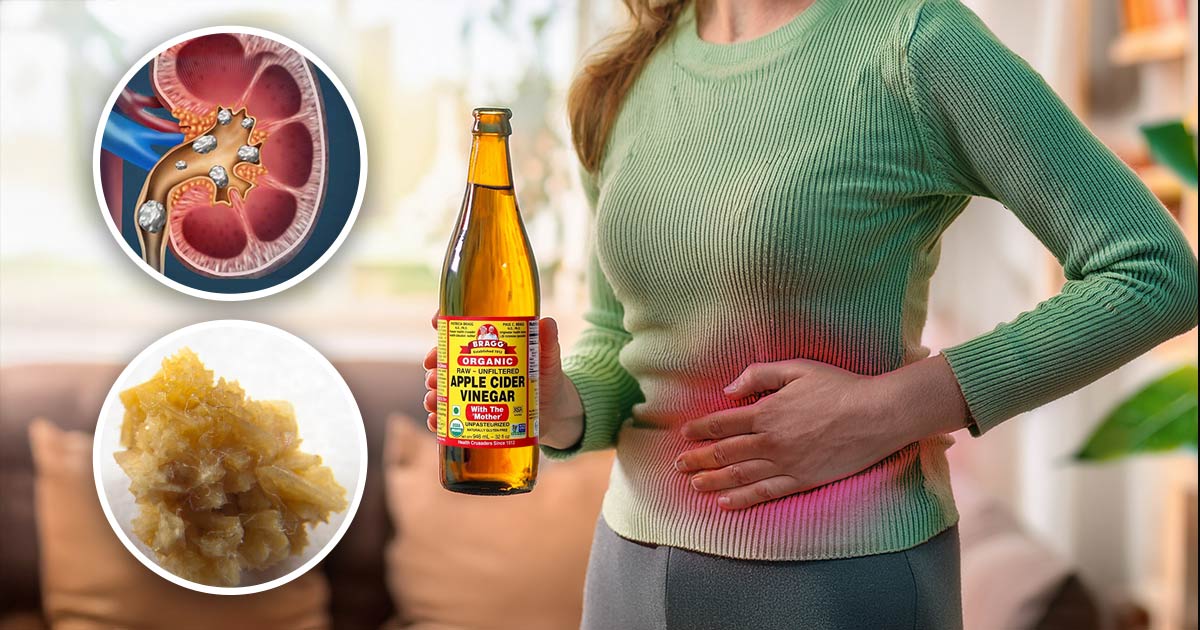Apple Cider Vinegar: A Real Fix for Kidney Stones or Just Hype?

If you’ve ever had a kidney stone, you know it’s no joke. We’re talking about serious pain like curl-up-in-a-ball-and-cry pain. While the usual advice from doctors includes drinking a ton of water and maybe getting medication or surgery, there’s a whole world of natural remedies people swear by. And one of the most talked-about? Apple cider vinegar.
So, does this tangy kitchen staple actually help with kidney stones or is it just another health trend that sounds good on paper? Let’s break it down.
First Off: What’s Up With Kidney Stones?
Kidney stones are hard little mineral deposits that form in your kidneys. They’re usually made of calcium and oxalate (sometimes uric acid), and they can range in size from a grain of sand to a small pebble. Some people pass them without knowing. Others? Not so lucky. The pain can be intense—especially when the stone tries to make its grand exit through your urinary tract.
While doctors often recommend hydration, dietary changes, or meds to manage them, some folks are looking to natural options to help prevent or break them down and so, thus, the theory of apple cider vinegar.
How ACV Might Actually Help With Kidney Stones
Here’s the theory: the acetic acid in ACV may help break down the substances that cause kidney stones. Think of it as a natural “stone softener.” Some believe it can help dissolve smaller stones or prevent new ones from forming.
ACV is also thought to help alkalize the body, meaning it might make your urine less acidic. And since stones tend to form in more acidic environments, this could be helpful. Plus, ACV might boost digestion and help flush out toxins—another bonus for your kidneys.
That said, we need to be real: this isn’t a miracle potion. But there are reasons people keep coming back to it.
How to Use Apple Cider Vinegar for Kidney Stones (Without Gagging)
Okay, if you’re thinking, “You want me to drink that stuff?” — you’re not alone. The taste is… acquired. But there are ways to make it more palatable and safe.
Start with 1–2 tablespoons of raw, unfiltered ACV (the kind with the “mother” in it) mixed into a big glass of water. You can do this once or twice a day. Add a little honey or a squeeze of lemon to mellow out the flavor.
Some people even take ACV capsules, which are easier on the taste buds but may not be as effective or fast-acting. Oh—and a big one—never drink ACV straight. It’s super acidic and can wreck your tooth enamel and irritate your throat.
Is There Any Science to Back This Up?
Here’s where things get a bit murky. There is some early research showing that acetic acid might help prevent kidney stone formation in animals or in lab conditions, but we don’t have solid, large-scale human studies yet.
Most of the buzz around ACV for kidney stones comes from anecdotal stories—people who swear it helped them pass stones or reduced their pain. While that doesn’t mean it’s useless, it’s good to take personal stories with a grain of salt (and not replace actual medical care).
Risks and Side Notes You Should Know
Even though ACV is natural, that doesn’t mean it’s harmless. Too much can lead to:
- Tooth enamel erosion
- Throat irritation
- Low potassium levels
- Upset stomach or digestive issues
People with ulcers, acid reflux, or certain medical conditions should steer clear—or at least check with their doc first. If you’re on medications like diuretics or insulin, ACV could interfere with them. Always a good idea to run it by your healthcare provider before adding it to your daily routine.
So… Is Apple Cider Vinegar the Real Deal for Kidney Stones?
Short answer: maybe, kind of, but don’t toss your water bottle just yet.
ACV might help some people with certain types of kidney stones, especially when paired with good hydration, a healthy diet, and regular checkups. But it’s not a guaranteed fix, and it definitely shouldn’t replace medical advice if you’re dealing with serious pain or larger stones.
If you’re curious to try it, go slow, mix it properly, and keep your expectations grounded. It could help with prevention or support your kidney health—but always remember: it’s part of the toolbox, not the whole kit.
